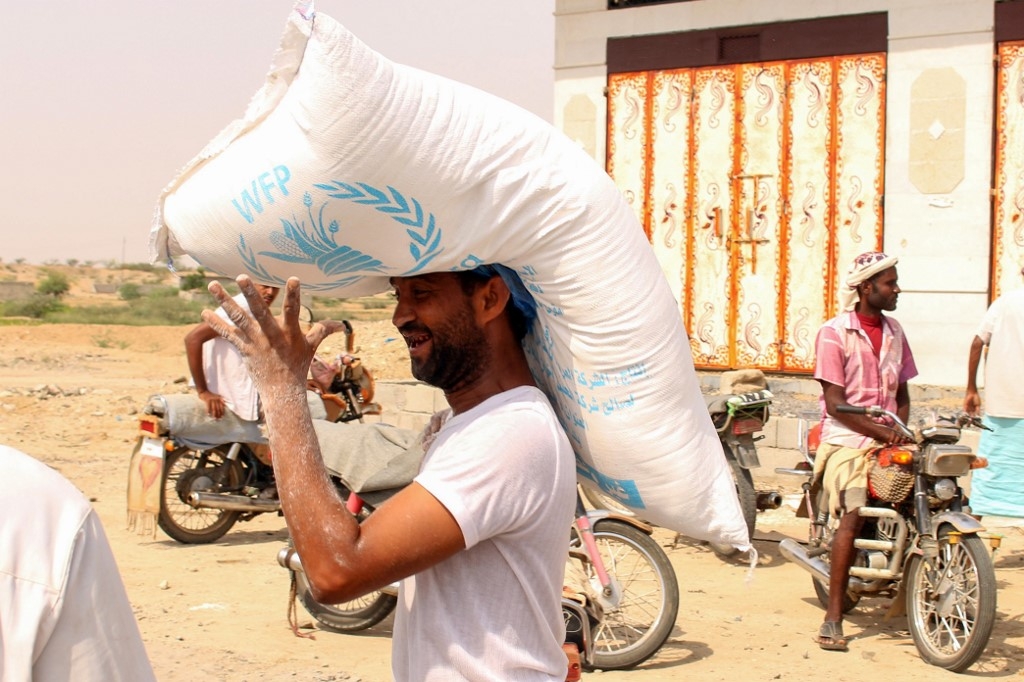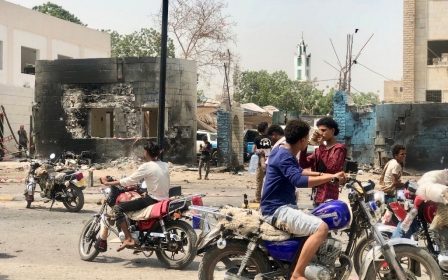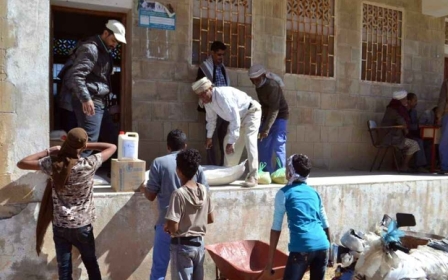UN finalises accord with Houthis to resume Sanaa food aid

The World Food Programme (WFP) and Yemen's Houthi movement, which controls the capital Sanaa, have said they have reached a deal that could lift the UN agency's partial suspension of aid, which has affected around 850,000 people.
The UN agency halted some aid in Sanaa on 20 June out of concern that food was being diverted from vulnerable people, but said it would maintain nutrition programmes for malnourished children, pregnant and nursing mothers.
The warring parties in Yemen's conflict have both used access to aid and food as a political tool, exacerbating what the United Nations has called the world's worst humanitarian crisis. Of Yemen's 30 million people, three-quarters need humanitarian assistance.
A Houthi official tweeted late on Saturday that the Iran-aligned group, which ousted the internationally recognised government from power in Sanaa in late 2014, had signed a deal with the WFP.
"Cash distribution will soon begin, God willing, in accordance with the mechanism," said Mohammed Ali al-Houthi, head of the Houthis' Supreme Revolutionary Committee.
New MEE newsletter: Jerusalem Dispatch
Sign up to get the latest insights and analysis on Israel-Palestine, alongside Turkey Unpacked and other MEE newsletters
Cash transfers to those in need so they can buy goods is a common method of aid distribution.
WFP spokesman Herve Verhoosel said the agreement represented an important step towards safeguards that guarantee "the accountability" of the agency's operations.
"We are hopeful that technical details can be agreed in the coming days," Verhoosel said in emailed comments to Reuters, without giving further details of what was agreed.
The aid ban resulted from a dispute over control of biometric data between the WFP and the Houthis.
The WFP discovered in December 2018 that donated food in Houthi areas was being systematically diverted through a local partner connected to the group. The Houthis have said the WFP insisted on controlling the data in violation of Yemeni law.
The biometric system - using iris scanning, fingerprints or facial recognition - is already used in areas controlled by the Saudi-backed government that holds the southern port city of Aden and some western coastal towns.
A Saudi-led Sunni Muslim coalition intervened in Yemen in 2015 against the Houthis, who control most large urban centres. The group says its revolution is against corruption.
The conflict has also forced some 3.3 million people from their homes and 24.1 million, about 80 percent of the population, are in need of aid, according to the UN.
Middle East Eye delivers independent and unrivalled coverage and analysis of the Middle East, North Africa and beyond. To learn more about republishing this content and the associated fees, please fill out this form. More about MEE can be found here.




